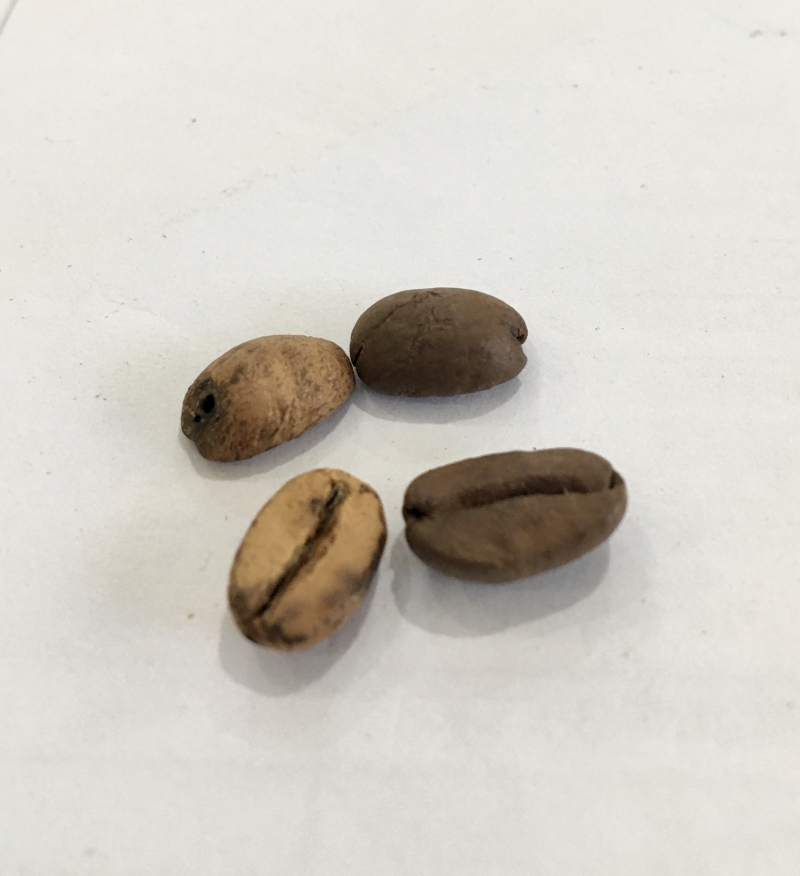
These are mostly found in Natural coffees. So the quakers make it through the natural sun-drying method (See more on Processing Methods here). Sorting happens naturally in water processed coffees (unripe/defect beans float to the surface and good beans sink) however, in natural processed coffees sorting is done by hand and good vs. bad isn't as easily visible. With natural coffees, Quakers are just a part of the experience unless you remove them from the coffee post-roast.
Essentially, because they were picked when they are unripe, they don't have enough sugars to caramelise during the roasting process, which means that the light coloured beans in your bag have a big impact on flavour. So those light coloured beans aren't under-roasted, they just don't have enough of the good stuff that fully ripe beans do to provide any quality flavour.
Because a quaker does not taste good. It tastes ashy and dry and can change the whole flavour of your coffee if you get too many in a brew.
How do we know this you ask? Well, we did a little experiment!
We selected a natural coffee and picked out enough quakers to pull an espresso shot. Let's just say, it was a flavour experience we hope you never have! The mouthfeel alone, chalky and dry, was enough to make sure we'll be picking out the quakers from our bag of delicious sun-dried beans.
Quakers are a natural part of coffee and usually there are so few in your bag that they won't have too much of an impact, but now if you see them, you know what they are! And you can easily remove them before grinding if you wish!
